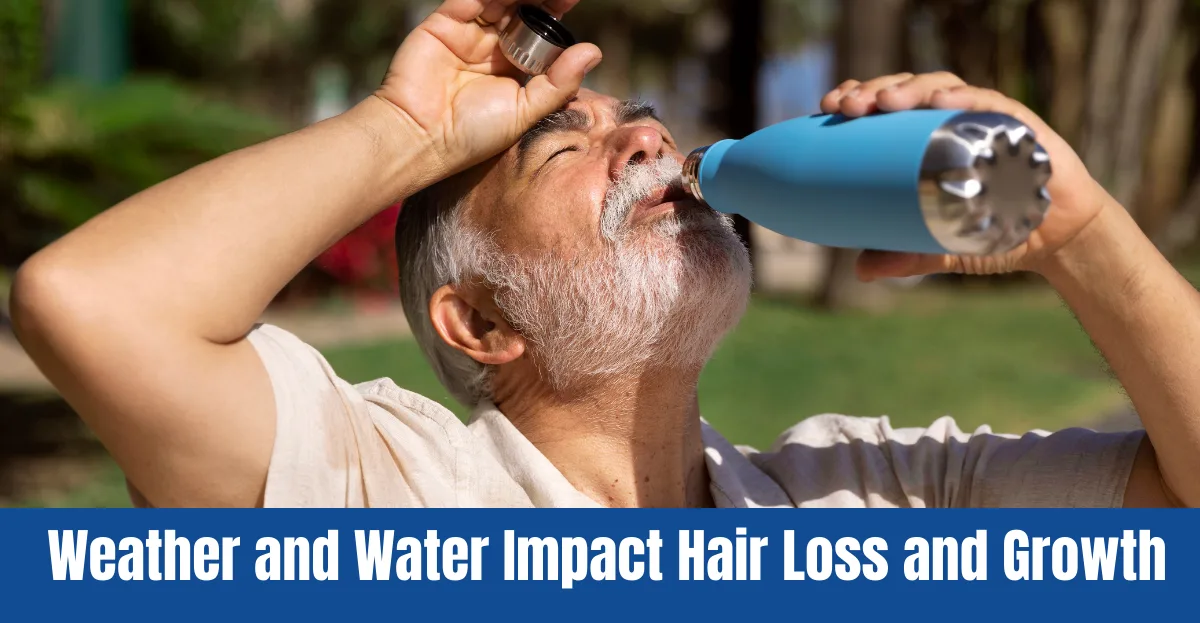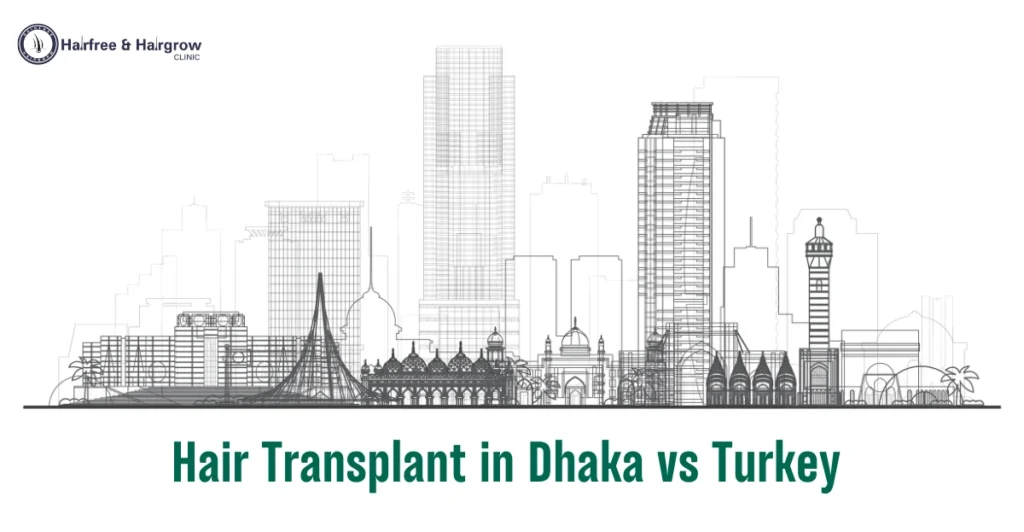The hair health of individuals residing in Bangladesh is profoundly influenced by the country’s tropical climate and water quality.
The region under consideration is characterized by high humidity levels, periodic temperature changes, and high mineral water content. These regions have a great impact on the growth patterns, quality, and loss of hair significantly.
Table of Contents
The Climate of Bangladesh and Its Influence on Hair Health
Bangladesh has a tropical monsoon climate characterized by long and hot summer seasons as well as a wet monsoon season. Humidity, temperature, geographies, and climate, in general, affect the health of the hair and scalp.

High Humidity Levels and Hair Health
Impact Of Humidity On Scalp Health And Hair Texture
Humidity is also critical in the scalp’s health because it affects the hair’s ability to take in moisture from the atmosphere. The trouble with a lot of humidity is that the hair becomes too porous leading to puffiness and loss of hair’s limpness and body.
Common Issues Such As Frizz, Dandruff, And Scalp Irritation
When the temperature is high, humidity makes the hair very prone to frizz especially because the hair fibers get wet and ‘swell up’. There is also likely to be an increase in the level of sweat which is likely to congest hair pores and inhibit hair growth in Bangladesh.
Seasonal Changes and Hair Loss Patterns
Hair Shedding Patterns in Different Seasons
Monsoon, summer, and winter seasons in Bangladesh have an impact on hair-shedding cycles. In Bangladesh, the high rainfall coupled with humidity during the moist season tends to promote more shedding and breakages. In summer, the heat may cause the scalp to produce more oil which when mixed with sweat may block the hair pores.
Water Quality in Bangladesh and Its Effects on Hair
Water quality differs in the different regions of Bangladesh and many places are characterized by “hard” water. Water that is considered hard has excess minerals such as Ca and Mg and others which can over time be unhealthy for the hair.
Hard Water and Hair Damage
When the hair is being washed in hard water, there is a hair mineral deposit on the scalp and hair. The deposit makes the hair unhealthy as it gives a dull look and at times restricts normal styling. It also causes hair breakage since it affects the hair structure. Hard water also causes moisture-blocking film over the hair, which makes the hair dry out and easy to break.
Water Contaminants and Their Effects on the Scalp
In certain places, tap water may contain such impurities as iron and copper, which usually negatively affect the scalp and hair. These elements when heaped on the hair make it unattractive and cause discomfort on the scalp. In addition, such impurities may also cause persistent dandruff and an itchy sensation on the scalp making it hard to grow hair.
Combined Effects of Climate and Water Quality on Hair Growth and Loss
Air tragedy in Bangladesh, due to the high humidity, has posed unlimited hair problems due to the mineral-rich water available. Conclusively, these two factors contribute to hair loss causes in Bangladesh and prevent healthy hair growth. Bangladeshi people must understand these environmental factors when selecting a ritual or products for their hair.
Preventative Measures and Hair Care Tips for Adverse Weather and Water Conditions
These are some of the steps that you can take to reduce the impact of Bangladesh weather and hair loss effectively:
- Use a Clarifying Shampoo: A clarifying shampoo can help remove any build-up in the hair from the hard water minerals. Use it once a week, as over-use may cause the hair to become limp from the build-up.
- Condition Regularly: Combating the drying effects of hard water and humidity can be done with the help of moisturizing conditioners.
- Choose Lightweight, Humidity-Resistant Products: Anti-frizz solutions and lightweight oils protect the hair cuticle from swelling in the moisture-laden air.
- Stay Hydrated: Maintain sufficient intake of fluids as this helps in the hydration of the scalp and hair, which can also combat the effects of hard water.
- Cover Hair When Outdoors: Folded or hat-covered hair is recommended to protect from sun and pollution, especially during monsoons.
- Rinse Hair with Filtered Water: If you can, please do the final rinsing with filtered water to minimize contact with hard water.
Our Clinic Location: Hair Transplant in Dhaka
Conclusion
In Bangladesh, the climate impact on hair and the quality of water pose problems for hair care is concerned.
The combination of high humidity, varying weather and conditions, and hard water for example, leads to a multitude of problems from frizzy and dry hair to irritation of the scalp and even loss of hair. These factors often necessitate modification in hair care activities.
For example, the use of clarifying shampoos and regular conditioning and hydration may have a great effect on pregnant women. They should protect their hair from possible harm.
FAQ
High humidity often makes the hair frizz and moist causing scalp problems. The hair strands become weak and this may lead to breakages. The humidity and hair health issues might also lead to intense hair fall.
Indeed, hard water makes the hair and the scalp accumulate minerals which lead to the hair getting dried, exposed to damage, and subsequently falling.
Seasons tend to affect both the weather and hair whereas the Monsoons tend to make the hair fall more as a result of the high humid weather with rain.
There are several practices including the use of clarifying shampoos, conditioning regularly, and use of anti-frizz products. It also includes taking a lot of water that can give the hair good health. So you might not be irritated by the factors of the climatic, water quality and hair conditions.

Written By
Medical Officer & Hair Transplant Surgeon
Dr. Nazmin Sultana Nipa is a distinguished hair transplant doctor in Bangladesh, known for her advanced skills in hair restoration. As a Medical Officer and Hair Transplant Surgeon, Dr. Nipa combines her extensive experience in the field with a focus on transparency and patient-centered care.
Disclaimer
We’ve made all possible efforts to ensure that the information provided here is accurate, up-to-date and complete, however, it should not be treated as a substitute for professional medical advice, diagnosis or treatment. See Detailed Disclaimers Here.



